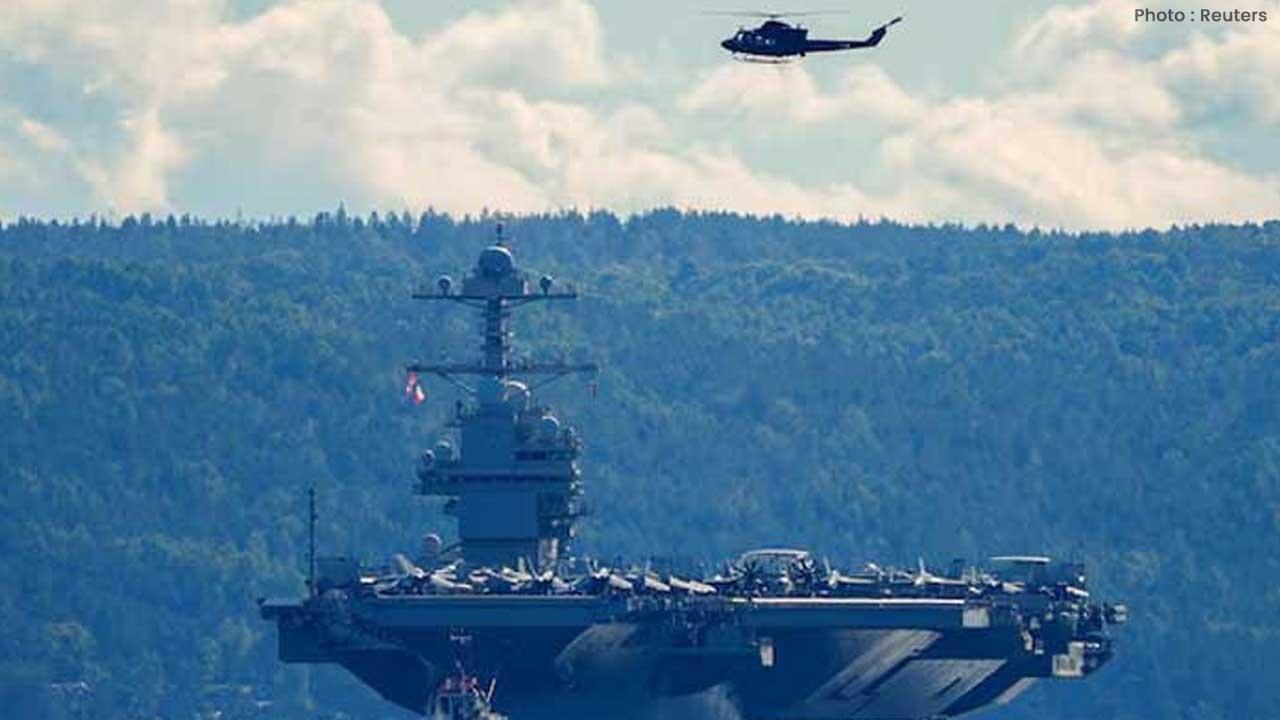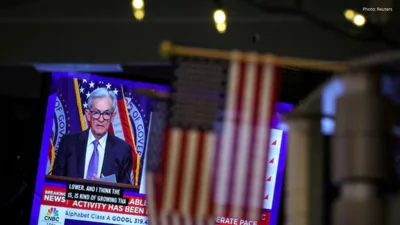
Post by : Raina Nasser
In a significant display of military power, the United States is sending its premier aircraft carrier, the USS Gerald R. Ford, to waters off the coast of Venezuela, marking one of the largest projections of US military presence in Latin America in recent history. This move has triggered worries regarding potential military escalation, as experts analyze whether this action targets drug trafficking or serves as a means of pressuring Venezuelan President Nicolás Maduro.
The impressive 100,000-ton warship, alongside approximately twelve other Navy vessels and over 12,000 sailors and Marines, is part of Operation Southern Spear. The Trump administration characterizes this mission as a counter-drug operation, which involves training maneuvers for US bombers near the Venezuelan coastline and ongoing naval actions in the Caribbean and Eastern Pacific aimed at intercepting suspected drug shipments.
Although Secretary of State Marco Rubio insists that the initiative is focused on tackling organized narcotics operations, analysts suggest that the deployment is primarily intended to apply political pressure. Elizabeth Dickinson, a senior analyst with the International Crisis Group, commented, “An aircraft carrier is not particularly effective for combating drug trafficking. It is evidently intended as a pressure tactic directed at Caracas.”
Former Navy submariner Bryan Clark pointed out that such a substantial military asset wouldn't have been authorized for deployment without a intent to utilize it if necessary. Tensions have escalated as Maduro rallies troops, civilians, and missile defense systems in readiness against possible assaults. Recent broadcasts on state television have showcased Venezuela's military preparedness, featuring formations and surface-to-air missile units.
The US deployment has not gone unnoticed regionally, with several nations expressing apprehensions regarding human rights and sovereignty issues. Colombian President Gustavo Petro momentarily severed intelligence-sharing agreements with the US, although cooperation has resumed under the condition of safe actions. Meanwhile, Mexico has increased its naval collaboration to intercept drug shipments in international waters.
Experts warn that while the USS Gerald R. Ford highlights significant US military capabilities, it may not completely suffice for an outright invasion. Tulane University professor David Smilde remarked, “The credible threat posed by this force might influence Maduro's government without necessitating direct combat.”
As the Ford inches closer to the Caribbean, attention is focused on how the US intends to capitalize on this military position to meet its strategic goals in South America, navigating the balance between counter-narcotics efforts and geopolitical posturing.










Rashmika Mandanna and Vijay Deverakonda to Tie the Knot on February 26
Rashmika Mandanna and Vijay Deverakonda are set to marry in an intimate Udaipur ceremony on February

FIFA Upholds 2026 World Cup Ticket Pricing Despite Fan Dissatisfaction
FIFA defends its ticket pricing for the 2026 World Cup, introducing a $60 tier to enhance affordabil

Trump Asserts Role in India-Pakistan Conflict Resolution, India Refutes Claims
Trump asserts he facilitated peace between India and Pakistan, but India firmly denies any US involv

Telangana Women Tragically Killed in California Car Accident, Families Request Assistance
Two Telangana women in the US die in a tragic car crash, prompting families to seek government suppo

Dhurandhar Achieves Remarkable Success, Surpassing ₹1100 Cr Worldwide
Ranveer Singh's Dhurandhar continues its box office dominance, crossing ₹1100 crore globally and sur

Asian Markets Climb as Dollar Weakens and Silver Surpasses $80 on Rate Cut Anticipation
Asian equities hit six-week highs while silver crosses $80, buoyed by expectations of Federal Reserv